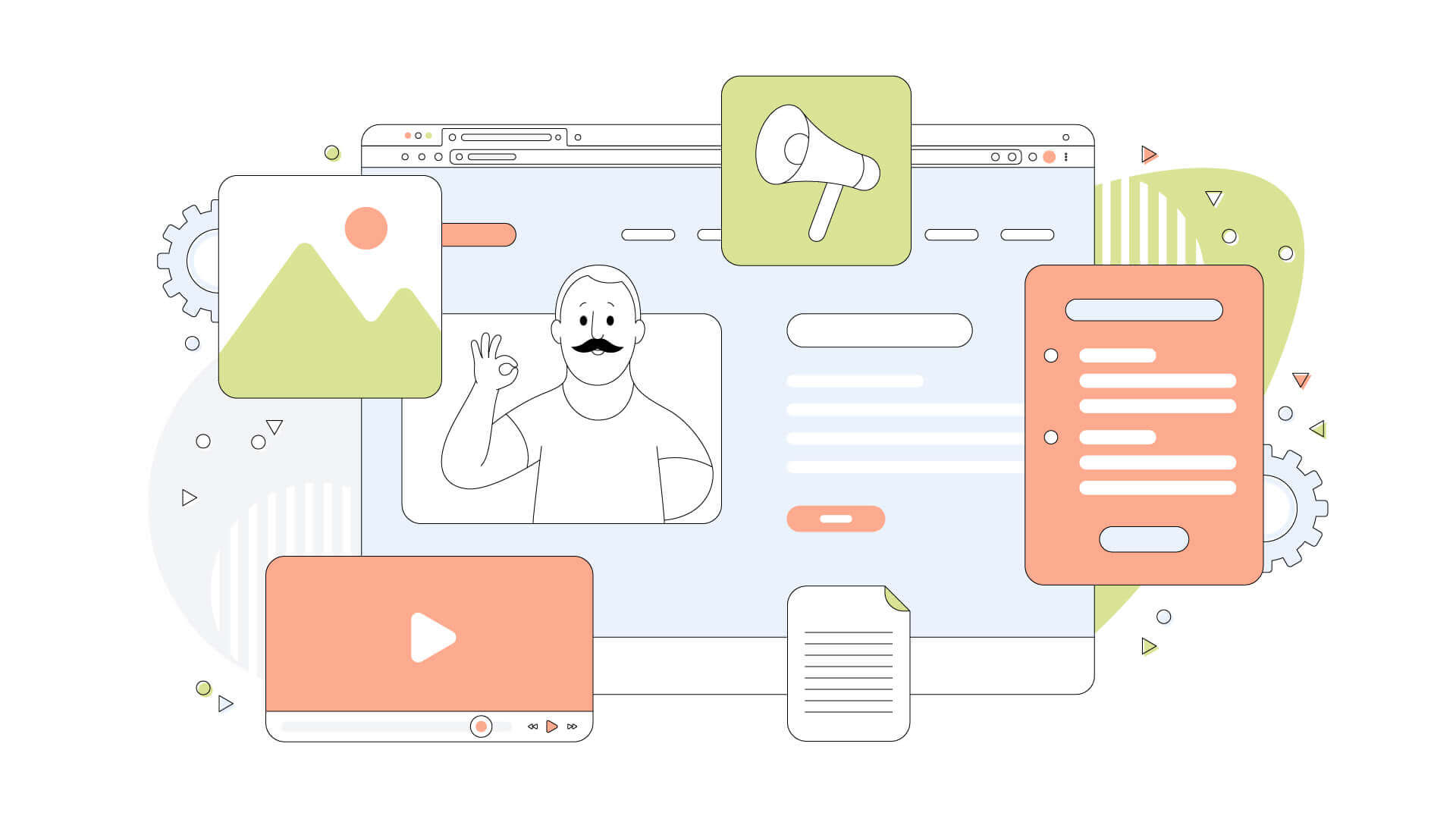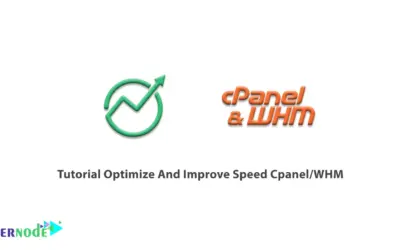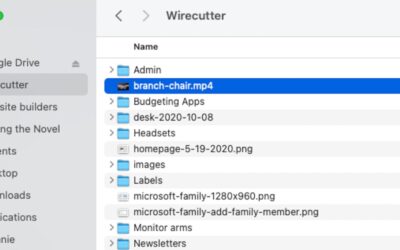Understanding the Benefits of cPanel and Joomla for CMS Optimization
cPanel and Joomla are two powerful tools that have revolutionized content management system (CMS) optimization. The benefits of using cPanel and Joomla go beyond just simplifying the management of your website. These platforms offer a wide range of features and functionalities that enable you to optimize your CMS for enhanced performance, security, and user experience.
One of the key benefits of cPanel and Joomla is their user-friendly interfaces, which allow even non-technical users to easily manage their CMS. With cPanel, you can easily navigate through various sections like file management, domain settings, and email configurations, making it a breeze to handle all aspects of your website. Joomla, on the other hand, provides an intuitive content management system that allows you to create, edit, and manage your website’s content effortlessly. Its drag-and-drop functionality and customizable templates make it easy to design a visually appealing and functional website.
Exploring the Key Features of cPanel for Joomla CMS
When it comes to managing a Joomla-based website, cPanel offers a range of key features that can greatly enhance your CMS experience. One of the standout features of cPanel is its intuitive and user-friendly control panel interface. With cPanel, users can easily navigate through the various settings and options, making it effortless to manage your website’s backend. Additionally, cPanel provides a convenient file manager that allows users to easily upload, download, and organize files within their Joomla CMS. This feature simplifies the process of updating content, media files, and extensions, ensuring that your website remains up-to-date and optimized for performance.
Another crucial feature offered by cPanel is its extensive database management tools. With cPanel, users can create and manage MySQL databases, which is essential for running a Joomla CMS smoothly. Through the control panel, users can easily create, delete, back up, and restore databases, providing a seamless experience when it comes to managing your website’s dynamic content. Furthermore, cPanel simplifies the process of creating and assigning user accounts, allowing you to grant specific permissions and access levels to different individuals, ensuring the security and integrity of your Joomla-based website. Overall, the features offered by cPanel greatly enhance the efficiency and ease of managing a Joomla CMS, making it an invaluable tool for website administrators.
Choosing the Right cPanel and Joomla Versions for Your CMS Needs
When it comes to choosing the right cPanel and Joomla versions for your CMS needs, it’s important to consider a few key factors. Firstly, you’ll want to assess the compatibility of the versions with your website’s requirements. Check if the cPanel version supports the necessary features and functionality that you need for your Joomla CMS. Similarly, ensure that the Joomla version is compatible with your website’s theme, plugins, and extensions. It’s advisable to consult the documentation and user forums to get a better understanding of which cPanel and Joomla versions are most suitable for your specific needs.
Moreover, considering the security aspect is crucial while selecting the versions. Make sure that the cPanel and Joomla versions you choose have the latest security updates and patches installed to mitigate any potential vulnerabilities. Keeping your CMS and its components up to date is essential to ensure a secure online presence. Additionally, staying up to date with the latest versions also allows you to take advantage of new features and improvements, ensuring that your website remains optimized and efficient. By carefully evaluating the compatibility, security, and update frequency, you can make an informed decision when choosing the right cPanel and Joomla versions for your CMS needs.
Configuring cPanel and Joomla for Optimal Performance and Security
When it comes to configuring cPanel and Joomla for optimal performance and security, there are several key steps that you can take. First and foremost, it is crucial to ensure that you are using the latest versions of both cPanel and Joomla. Updates often include important security patches and performance enhancements, so regularly checking for updates and installing them is essential. Additionally, reviewing and adjusting your server settings in cPanel can help optimize the performance of your Joomla CMS. This includes enabling caching, fine-tuning PHP settings, and optimizing database settings. By configuring cPanel and Joomla in this way, you can significantly improve the speed and overall performance of your website, providing a better user experience for your visitors.
In terms of security, there are several measures you can take to safeguard your cPanel and Joomla CMS. Firstly, it is recommended to change the default login credentials for both cPanel and Joomla, using strong, unique passwords. Implementing two-factor authentication is also highly recommended, as it adds an extra layer of security to your login process. Additionally, regularly backing up your website’s files and database is crucial in case of any security breaches or data loss. By configuring regular backups through cPanel, you can ensure that you have a copy of your website’s data that can be easily restored if needed. Lastly, regularly monitoring and updating the security extensions and plugins you have installed in Joomla is vital to protect against potential vulnerabilities. By following these steps, you can configure cPanel and Joomla to optimize performance and enhance the security of your CMS.
Optimizing Website Speed and Loading Times with cPanel and Joomla
One of the key factors in ensuring a successful website is the speed and loading times. Slow loading speeds can lead to frustrated users and potential loss of business. Fortunately, with cPanel and Joomla, optimizing website speed and loading times becomes a much simpler task.
One effective way to improve website speed is by utilizing caching mechanisms. Both cPanel and Joomla offer built-in caching options that can significantly speed up your website. By enabling caching, static versions of your web pages are stored, allowing for faster retrieval and delivery to users. Additionally, cPanel provides server-level caching options such as Varnish Cache, which can further enhance performance by caching dynamic content at the server level. Combined with Joomla’s powerful caching features, your website can experience a considerable boost in loading times.
Enhancing User Experience and Engagement with cPanel and Joomla CMS
Joomla CMS offers a range of features and functionalities designed to enhance user experience and engagement. By utilizing cPanel in conjunction with Joomla, website owners can easily configure and optimize their CMS settings to provide a seamless and enjoyable browsing experience for visitors. With cPanel, users have access to a robust range of tools for managing files, creating databases, and monitoring website performance. Additionally, Joomla offers an array of user-friendly features such as customizable templates, built-in search engine optimization (SEO) functionality, and social media integration, all of which contribute to a more engaging and interactive user experience. By leveraging these powerful tools, website owners can ensure that their Joomla CMS is optimized to captivate and retain the attention of their target audience.
One key aspect of enhancing user experience and engagement with cPanel and Joomla is through the use of advanced extensions. With cPanel’s easy installation process and Joomla’s extensive marketplace of extensions, website owners can seamlessly integrate additional functionalities to further enhance user engagement. From adding interactive sliders and image galleries to incorporating user forums and advanced contact forms, these extensions provide website owners with endless possibilities to customize their Joomla CMS and create a personalized and interactive experience for their audience. By leveraging the power of cPanel and Joomla extensions, website owners can go beyond the basic features of a CMS and truly optimize their website’s user experience and engagement.
Leveraging cPanel and Joomla Extensions for Advanced Functionality
Leveraging cPanel and Joomla extensions is crucial for enhancing the functionality of your website. These extensions provide additional features and tools that go beyond the standard capabilities of cPanel and Joomla CMS. By incorporating these extensions, you can tailor your website to meet your specific requirements and provide an improved user experience.
One of the key benefits of leveraging extensions is the ability to add advanced functionality to your website. Whether you need to integrate social media feeds, implement e-commerce solutions, or enhance your site’s security, cPanel and Joomla extensions offer a wide range of options. With thousands of extensions available in the Joomla Extension Directory, you can easily find and install the ones that best suit your needs. By customizing your website to include these extensions, you can create a more dynamic and interactive experience for your users.
Implementing SEO Best Practices with cPanel and Joomla CMS
With the growing importance of search engine optimization (SEO) in online marketing, it is crucial to implement best practices to ensure that your website ranks well in search engine results. By utilizing cPanel and Joomla CMS, you can enhance your website’s SEO capabilities and improve its visibility.
One of the key features of cPanel for Joomla CMS is the ability to manage meta tags and keywords for each page. With cPanel, you can easily update and optimize meta titles, descriptions, and keywords to improve your website’s search engine rankings. Additionally, cPanel’s SEO tools allow you to generate search engine friendly URLs, making it easier for search engines to crawl and index your website. By making good use of these features, you can ensure that your website is properly optimized for search engine visibility.
Troubleshooting Common Issues in cPanel and Joomla CMS
One of the common issues that users may encounter when using cPanel and Joomla CMS is the occurrence of error messages. These error messages can be quite frustrating as they can prevent users from accessing their websites or performing certain actions. One possible solution to this problem is to check the error logs in cPanel and Joomla. By reviewing the error logs, users can identify the source of the problem and take appropriate steps to fix it. Additionally, it is also important to keep the CMS and its associated components updated to ensure compatibility and stability.
Another common issue that users may face is the occurrence of slow loading times for their websites. Slow loading times can deter visitors and negatively impact the user experience. To address this problem, users can optimize their websites by enabling caching, compressing images, and minimizing the number of external HTTP requests. Furthermore, it is essential to ensure that the web hosting environment meets the recommended system requirements for running cPanel and Joomla CMS. This includes having sufficient server resources, such as CPU, memory, and disk space, to support the smooth operation of the CMS and its associated functionalities.
Keeping cPanel and Joomla Up to Date for Continuous Optimization
Updating cPanel and Joomla regularly is essential for maintaining the overall performance and security of your website. By keeping these content management systems up to date, you can ensure that you are utilizing the latest features, bug fixes, and security patches that the developers release. These updates not only enhance the functionality of cPanel and Joomla but also protect your website from potential vulnerabilities and threats.
Regular updates also help in optimizing your website’s performance by improving its speed and compatibility with various devices and browsers. With each update, developers often introduce performance enhancements and efficiency improvements that can make your website faster and more responsive. Additionally, keeping cPanel and Joomla updated allows you to take advantage of the latest SEO techniques and features, ensuring that your website remains optimized for search engines and ranks well in search results.
What are the benefits of using cPanel and Joomla for CMS optimization?
Using cPanel and Joomla allows for easy website management, improved security, and access to a wide range of features and extensions to enhance your website’s functionality.
What are the key features of cPanel for Joomla CMS?
cPanel offers features such as easy installation and updates of Joomla, file and database management, email management, security options, and website statistics.
How do I choose the right cPanel and Joomla versions for my CMS needs?
It’s important to consider the compatibility between cPanel and Joomla versions. Check the documentation and requirements of both platforms to ensure they work well together.
How can I configure cPanel and Joomla for optimal performance and security?
You can optimize performance by enabling caching, compressing files, and optimizing your database. To enhance security, use strong passwords, install security extensions, and keep both cPanel and Joomla up to date.
How can I improve website speed and loading times with cPanel and Joomla?
You can optimize website speed by minifying CSS and JavaScript files, enabling Gzip compression, and utilizing a content delivery network (CDN) through cPanel and Joomla configuration.
How can I enhance user experience and engagement with cPanel and Joomla CMS?
By using responsive templates, optimizing navigation, implementing social media integration, and utilizing Joomla extensions, you can enhance user experience and engagement.
How can I leverage cPanel and Joomla extensions for advanced functionality?
You can extend the functionality of your Joomla website by installing and configuring various extensions available in the Joomla Extension Directory (JED) through cPanel.
How can I implement SEO best practices with cPanel and Joomla CMS?
You can optimize your Joomla website for search engines by configuring SEO-friendly URLs, adding meta tags, optimizing page titles and descriptions, and generating XML sitemaps through cPanel and Joomla.
What are some common issues in cPanel and Joomla CMS and how can I troubleshoot them?
Common issues include compatibility problems, errors during installation, and conflicts with extensions. Troubleshooting involves checking error logs, disabling extensions, and seeking support from the Joomla and cPanel communities.
How important is it to keep cPanel and Joomla up to date for continuous optimization?
It is crucial to keep both cPanel and Joomla up to date as updates often include bug fixes, security patches, and new features that can improve website performance, security, and overall optimization.




